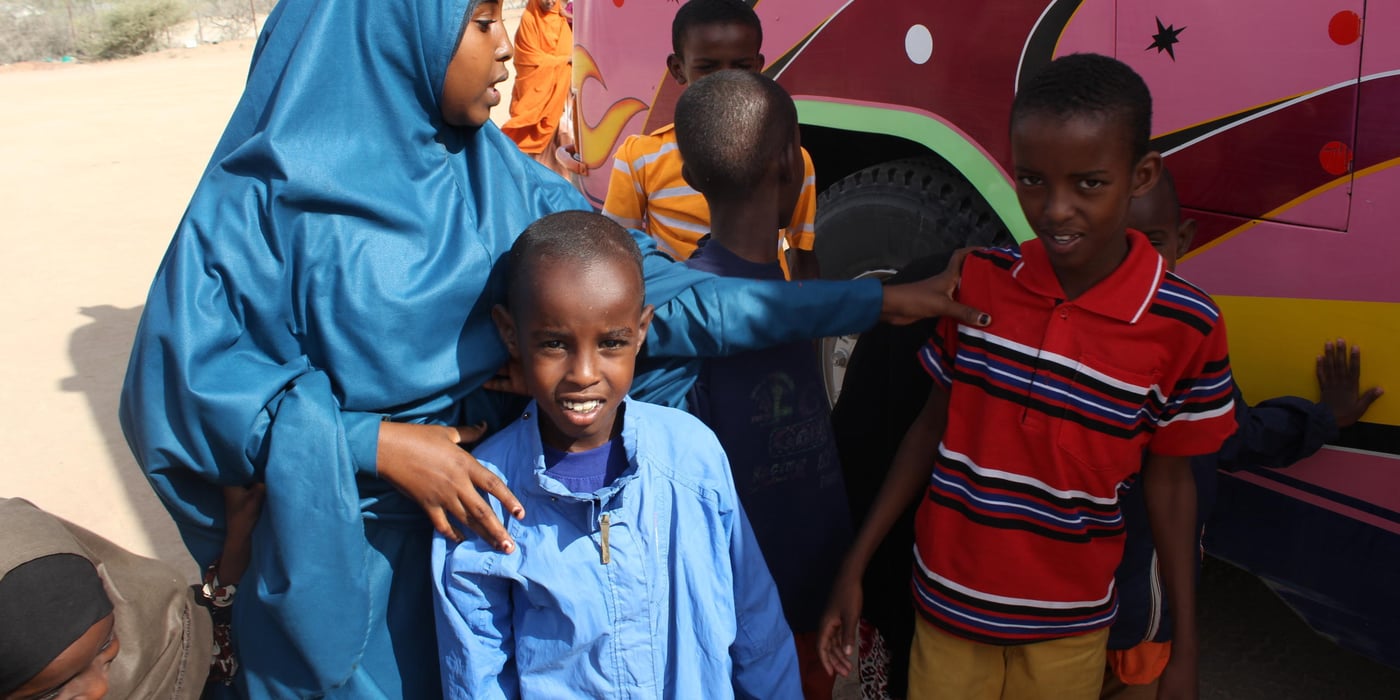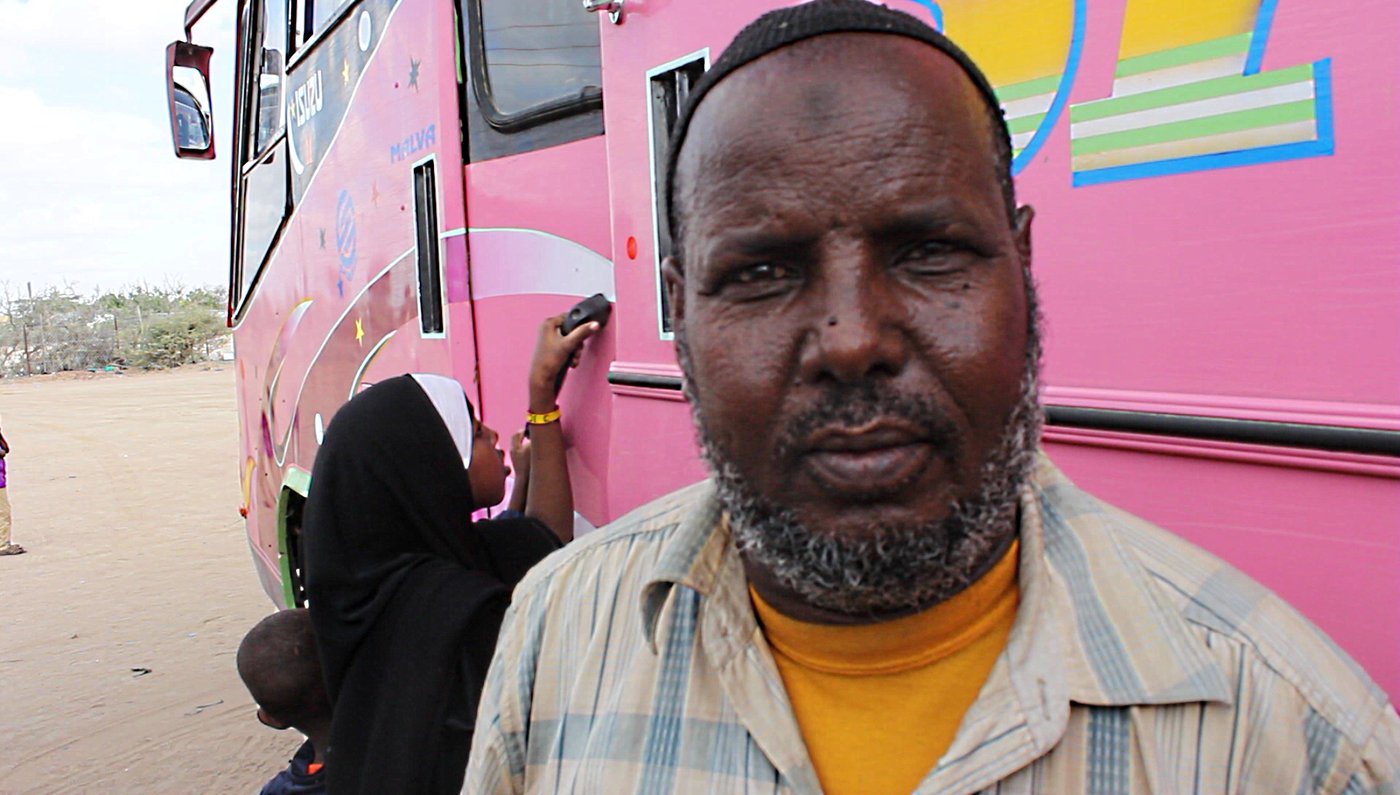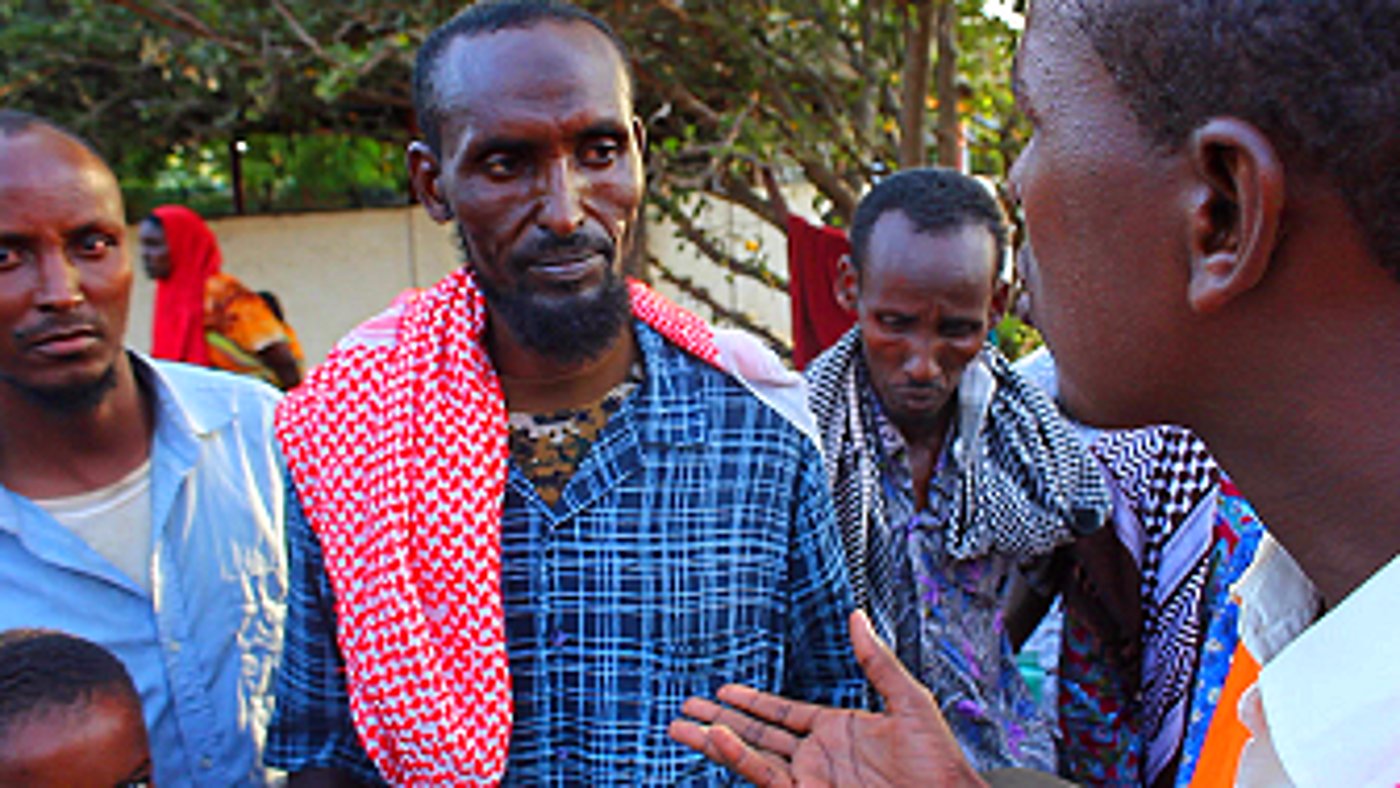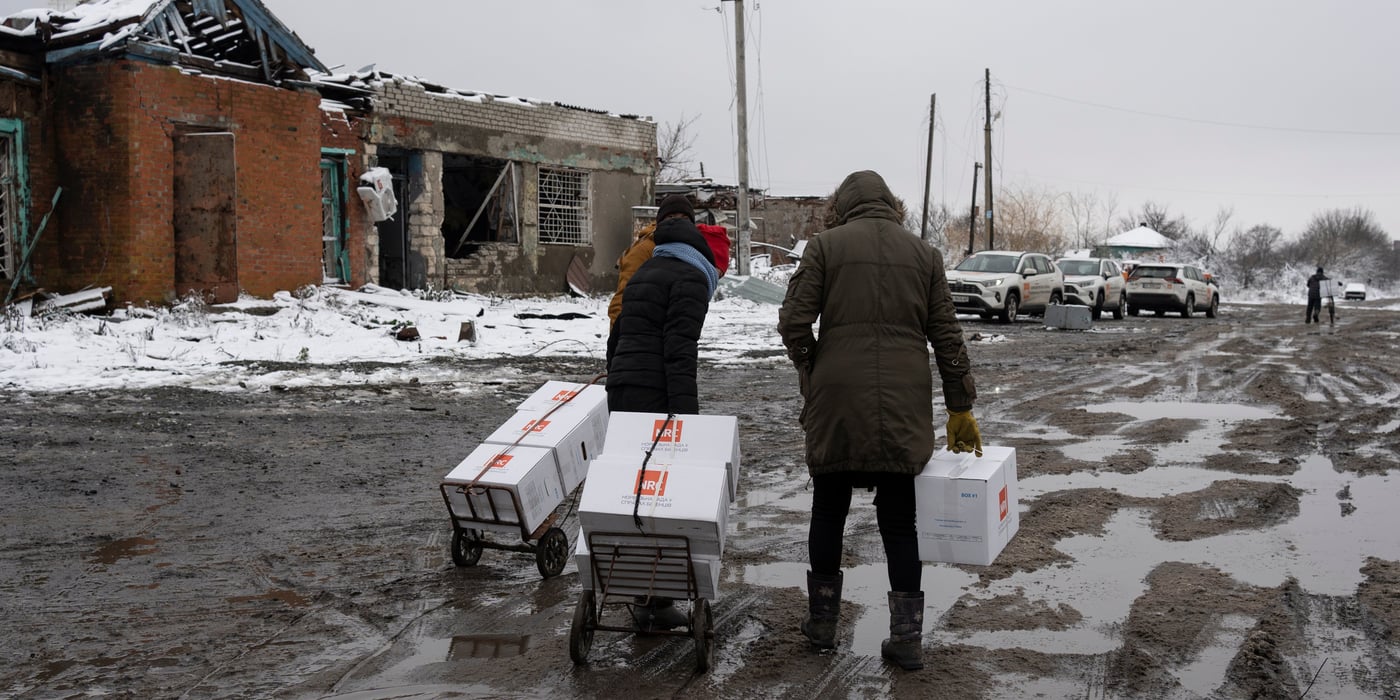
Fatiha, 19 years old
Dressed in blue, 19-year-old Fatiha is one of over 5,000 women and girls who are returning to Somalia from Dadaab refugee camp. The camp opened in 1992 and today hosts over 130,000 people. Traveling in three big buses belonging, the returning families have decided to begin a new life away from the refugee camps.
Fatiha was only 2 years old when she arrived in Dadaab 17 years ago. Her five bothers and two sisters were born after her in the camp. Being the eldest daughter, her younger siblings look up to her, especially in moments of uncertainty like this, when they do not know what lies ahead.

Yussuf, 56 years old
"I returned my ration card to UNHCR but I wish they could let me keep it as a souvenir," laughed Yussuf, who is preparing to leave Dadaab refugee camp after 15 years. One of his eight sons is remaining behind to finish secondary school. He also hopes that his son will be able to stay even longer to join university in Kenya.
Yussuf has used the information helpdesks managed by NRC and UNHCR in Kambioos to make his decision about returning home. "Your people have enabled refugees to make informed choices from the information on the voluntary repatriation process and how it is being coordinated, including information on the situation back in Somalia," said Yussuf.
"Once I arrive at my destination, I will identify an appropriate occupation to engage as a means to sustain my livelihood and feed my family. I have good business skills but getting sufficient capital remains a challenge."

Osman, 40 years old
Osman has spent 14 years in Dadaab camp, where 8 of his 10 children were born. As he boards the bus for Luuq, he hopes to return and farm his homeland, and produce enough food to feed his family and sell the surplus.
"My reason to quit Dadaab is anchored on a profound psychological effect that comes from feeling like a full citizen and not a refugee," said Osman. "When I cross the border I will leave the refugee tag behind. I look forward to this transformation. People used to be kind to us before, but now the attitude towards us has changed. People are becoming hostile. They do not like us. Being a refugee is demeaning, it makes us feel less human."

NRC is supporting Somali refugees returning home through its voluntary repatriation programme. This includes providing families with information, counselling and legal support. Providing families with information helps them make informed decisions about leaving the camp, and setting themselves up for a new life in Somalia.



